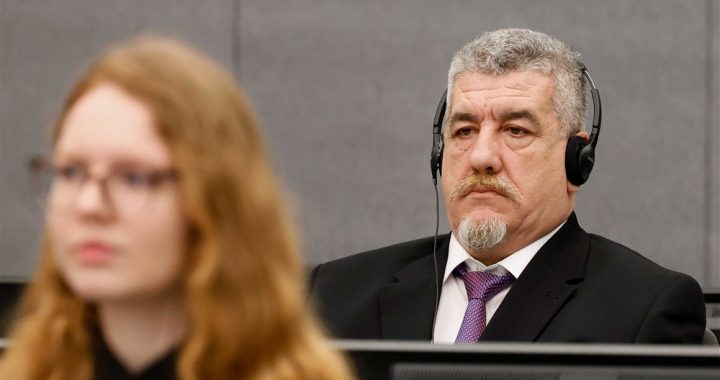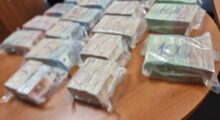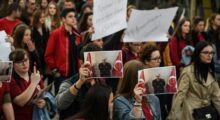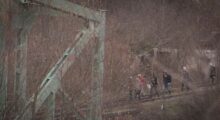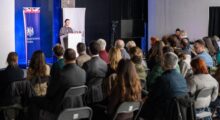In the second war crimes trial to open at the Kosovo Specialist Chambers in The Hague, proceedings began on Tuesday in the case against former Kosovo Liberation Army, KLA fighter Pjeter Shala, who is accused of direct involvement in the arbitrary detention, cruel treatment, torture and murder of prisoners.
In their opening statements, the prosecution and the victims’ counsel, a lawyer representing the victims, argued that the alleged crimes left the victims physically damaged and suffering the consequences of the abuse to this day.
Shala repeated his ‘not guilty’ plea to the court.
According to the prosecution, 18 people were detained, interrogated and abused between approximately May 17, 1999 and June 5, 1999 at a metal factory in the northern Albanian town of Kukes that was used by the KLA as a detention centre.
The detainees were people suspected of having collaborated with Yugoslavia and Serbia or of “failing to support the KLA”, the indictment claims. They were mostly Kosovo Albanians but some were Roma.
“The victims of this case were targeted because of their perceived closeness to the Serbs. They were treated as spies and collaborators who deserved punishment and humiliation. They were detained without any legal process,” acting specialist prosecutor Alex Whiting told the court.
The indictment names two other KLA ex-fighters, Sabit Geci and Xhemshit Krasniqi, as members of a “joint criminal enterprise” along with Shala, although neither has yet been charged.
Whiting said that “this criminal group, including the accused, killed one of these victims on the night of June 4 or 5, 1999, or around that time”.
Prosecutor Filippo de Minicis told the court meanwhile that Shala was not the commander of the group but bears responsibility because he “extensively participated in [the detainees’] mistreatment, which led to the killing of one of them”.
The prosecution claims that at least one of the alleged detainees was beaten with fists, a baseball bat, rubber bats, other rods and the butt of a revolver.
Shala and the other KLA members allegedly cut a prisoner’s wrists, burned him with cigarettes, threw salt into his wounds and broke his teeth.
Victim’s counsel Maria Radziejowska told the court that “even though [the crimes] happened more than 20 years ago, the injuries and suffering that were caused continue to affect the daily lives of the people who experienced them”.
Radziejowska said that some of the victims were kept for more than a month in the factory in Kukes, where they were beaten continuously, did not receive medical care and were also abused psychologically, threatened with death or serious physical injuries.
According to Radziejowska, some of the victims were ordered to beat other victims and were seriously assaulted when they refused to do so.
The Specialist Chambers are part of Kosovo’s judicial system but are located in the Netherlands and staffed by internationals.
They were set up in 2015 by the Kosovo parliament, acting under pressure from the country’s Western allies, who believe Kosovo’s own justice system is not robust enough to try KLA cases and protect witnesses from intimidation, after previous trials at the Yugoslav war crimes tribunal were marred by witness-tampering.
The so-called ‘Special Court’ is highly unpopular in Kosovo, where it is seen as unfairly targeting Kosovo Albanian freedom fighters rather than the Serbian perpetrators of the majority of the war crimes that were committed in 1998-99.
Whiting told the court that a frightening climate of witness intimidation exists in Kosovo.
“It is the climate in which [the victims] and their families live every day of their lives. It is a reality to which they must return,” he said.
Shala’s trial continues on Wednesday.







